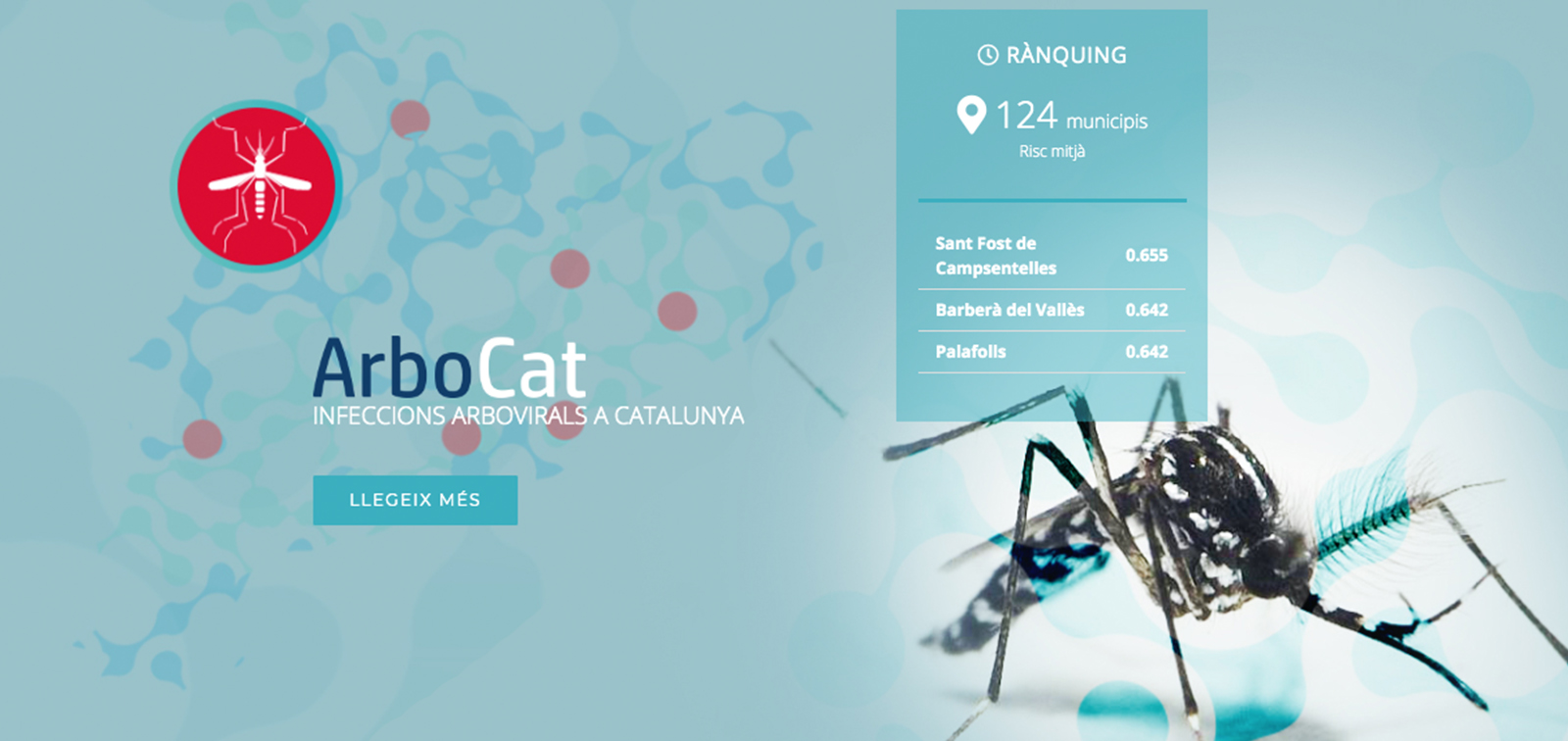ISGlobal and ASPCAT Present Arbocat, the First Platform in Europe Predicting the Risk of Arboviral Outbreaks
The Arbocat tool calculates the probability of autochthonous cases of dengue, zika and chikungunya occurring in the over 900 municipalities in Catalonia
14.06.2019
The Barcelona Institute for Global Health (ISGlobal), a research centre supported by ”la Caixa”, working with the Catalan Public Health Agency (ASPCAT) today published a public utility tool on the website www.arbocat.cat that provides real time risk predictions of autochthonous outbreaks of the arboviral diseases dengue, chikungunya and Zika for all of Catalonia’s municipalities.
There is currently growing concern in southern European countries about arboviral diseases, that is, diseases caused by viruses transmitted by arthropod vectors, such as mosquitoes. The first cases of locally transmitted dengue fever occurred in France and Spain in 2018. These had been preceded by several outbreaks of chikungunya recorded during previous years in France and Italy.The first autochthonous case of dengue in Catalonia was detected by ASPCAT last November, and a significant number of imported cases of arboviral disease have been recorded over the last few years. Between 2015 and 2018, 700 of the possible cases of arboviral disease reported to the Catalan Epidemiological Surveillance Network (XVEC) were confirmed: 371 cases of dengue, 183 of zika and 146 of chikungunya.
The combination of globalisation and global warming favour the propagation of both arboviruses and their insect vectors. The tiger mosquito (Aedes albopictus), for instance, can transmit dengue, yellow fever, chikungunya and Zika.
The new platform, www.arbocat.cat, was developed by ISGlobal’s Climate and Health research programme and has received funding from PICAT, a platform for arbovirus control in Catalonia coordinated by the Vall d’Hebron Research Institute (VHIR) in collaboration withASPCAT and Mosquito Alert.
The main function of the new tool is to provide graphic visualizations on a map of Catalonia of the results of a risk prediction model. The model uses a number of variables, including data on the climatic, ecological and socioeconomic profile of each municipality, to calculate the parameters that could shape the evolution of an outbreak triggered by an imported case of arboviral disease . It also estimates the rate of imported cases from travellers for each municipality. To generate the simulations, the models use the data on the prevalence in the area of the mosquitoes that can transmit these viruses and people returning from trips with infections. These infections are diagnosed in Catalan health care centres and medical services for travellers and, because they are notifiable diseases, they are reported to the XVEC. This information is provided on an ongoing basis by ASPCAT (cases) and the Mosquito Alert project (mosquitoes).
“Our goal is to provide the professionals and agencies responsible for public health with realistic scenarios and predictions in the short and long term which will allow them to make informed decisions”, explains Xavier Rodó, ICREA researcher, project coordinator and head of ISGlobal’s Climate and Health programme.
Joan Guix, Secretary of Public Health of the Generalitat of Catalonia, highlighted the collaboration between the world of research and public health, and commented that “the innovative model presented here today is an example of the “one health” concept that recognises the integration and interconnection between the health of humans, animals and the environment ”.
Mireia Jané, Deputy Director of Public Health Surveillance and Emergency Response, explains that “the experience we have acquired since 2015 through the notification of imported cases of arboviral disease made it possible to create synergies and to develop predictive models that will allow us to detect autochthonous cases in Catalonia promptly and be in a position to react quickly to avoid or limit outbreaks ”.
“Carlos Dommar, who developed the platform in ISGlobal with Leonardo López, explains more about it: “At the moment, what we have is a basic version—a prototype really—which we hope will prove useful during the high-risk months this year. Once it has been launched, it will automatically recalculate the estimated risk of an outbreak for each municipality on a continuous basis . We will focus on improving the predictions and on obtaining increasingly accurate forecasts as well as on ensuring the continuity of the data. This is a tool that could easily be exported to other parts of the world with similar public health concerns about emerging diseases, and it could even be useful in areas where the diseases are endemic.”



